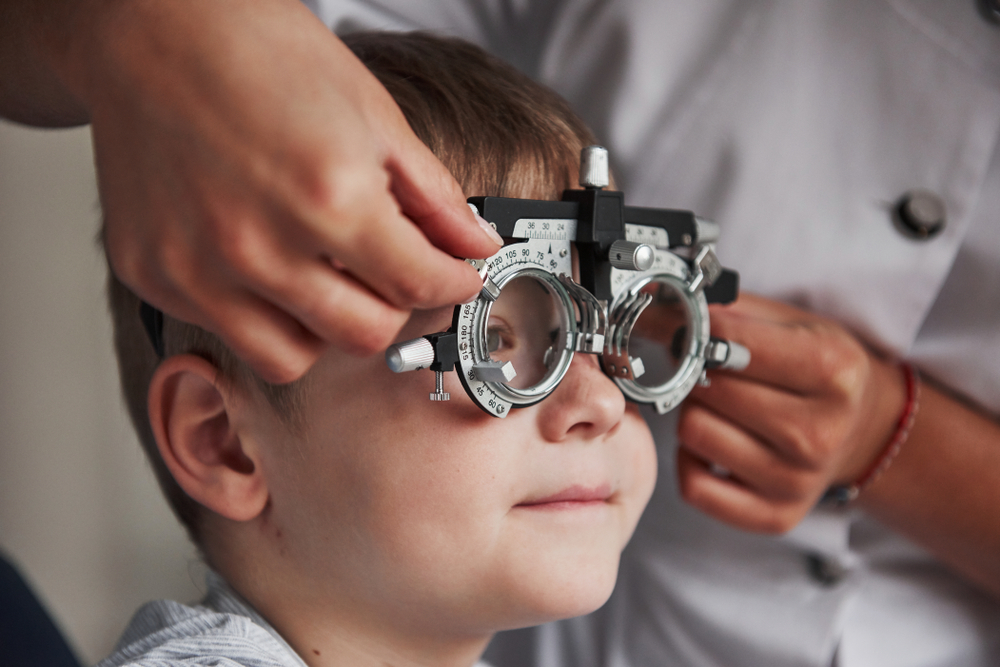
As parents, we often focus on milestones like speaking, walking, and learning new skills, but vision plays a far greater role in your child’s overall development than many realize. Healthy eyesight is directly linked to how the brain grows, processes information, and builds connections that support learning and social development.
Understanding the Link Between Vision and Brain Development
Vision is more than just “seeing clearly.” About 80% of what children learn in their early years is presented visually. From recognizing faces to reading words on a page, the brain relies heavily on visual input to develop pathways that support cognitive, emotional, and motor growth. When vision isn’t working properly, the brain has to work harder, which can affect reading, learning, and even behavior.
During childhood, the brain is especially adaptable - known as neuroplasticity. If vision issues are caught and corrected early, the brain can adjust and rewire effectively, helping children thrive both in and out of the classroom.
Common Eye Conditions in Children
Even children who seem to see well may struggle with vision problems that aren’t always obvious. Some of the most common conditions include:
Amblyopia (Lazy Eye): Reduced vision in one eye due to abnormal visual development.
Strabismus (Crossed Eyes): Misalignment of the eyes that can affect depth perception.
Refractive Errors: Nearsightedness, farsightedness, and astigmatism, which can make it hard to see clearly at different distances.
Convergence Insufficiency: Difficulty coordinating both eyes when focusing on close tasks like reading.
If left untreated, these conditions can interfere with learning, attention, and overall development.
Early Detection Is Key
Because vision and brain development are so closely connected, early detection of eye conditions is critical. Regular pediatric eye exams allow eye doctors to identify issues before they impact school performance or daily activities.
Unlike school vision screenings, which only test for basic visual acuity, routine eye exams provide a more thorough evaluation. They can uncover problems that might not be obvious but could still affect learning, focus, and overall development.
When vision issues are identified, timely intervention such as glasses, patching, or myopia management can make a significant difference in supporting healthy growth. These treatments not only improve eyesight but also allow the brain to develop and adapt properly.
Ongoing monitoring is equally important as children grow and their visual needs change. Regular follow-ups provide reassurance for parents while ensuring that any new concerns are addressed promptly. The earlier vision problems are corrected, the better the brain can adjust. This strengthens the foundation for a child’s academic success and long-term development.
Schedule Your Child’s Exam Today
Vision is a vital piece of your child’s brain development and overall well-being. Healthy eyesight supports learning, social growth, and confidence. With regular pediatric eye exams, you can ensure your child’s vision and brain are developing in harmony.
At Sharp Sight Eyecare & Dry Eye Center, we specialize in pediatric eye care and early detection of vision conditions. Schedule your child’s comprehensive eye exam and give them the best foundation for healthy development and lifelong learning. Visit our office in Gun Barrel City or Tyler, Texas. Call (903) 418-3300 or (903) 466-7482 to book an appointment today.





